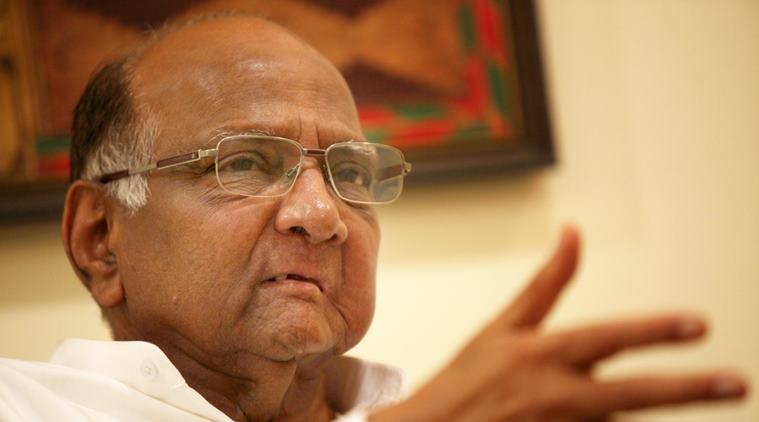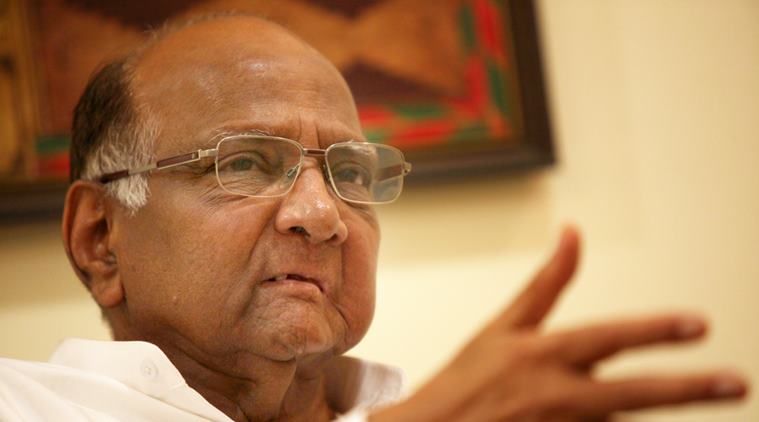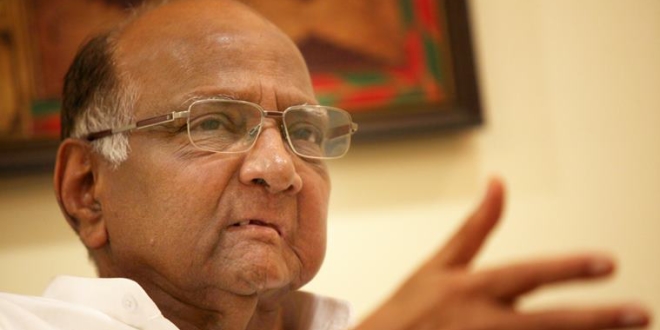
 Nationalist Congress Party chief Sharad Pawar
Nationalist Congress Party chief Sharad Pawar
With DMK President M. Karunanidhi in his 90s and Punjab Chief Minister Parkash Singh Badal in his late 80s, NCP chief Sharad Pawar, who turned 75 last week and was celebrated by the who’s who of Indian politics, cannot claim importance on the basis of his age. In terms of numbers in Parliament, or for that matter even the state legislature, his strength can only be described as modest. Whenever he has led a party other than the Congress, Pawar has never won a majority in the state legislature. Yet, from at least 1991 to 2009, he has been watched as a possible prime minister. His critics may say those claims were often exaggerated but the fact that he has occupied a central position in Delhi for over two decades makes him an important politician.
But neither his prime ministerial ambitions nor his long career in Delhi really captures the real importance — and difficulty — of being Sharad Pawar. He is a typical “career politician” of the kind that representative democracy tends to produce. It is said that he has a passion for politics — like the passion a professional has for career and work. Unless one is clear that the aim is to rise to the top, such passion cannot be sustained for years and decades. In this sense, Pawar represents the post-Independence generation that began to explore the professionalisation of politics. In a relatively stable democracy, a political career involves skilfully appropriating democratic spaces for personal political ambition and, at the same time, expanding the scope of the “personal”. Ambition and the will to succeed bridges the personal with the public. Pawar dreamt of such a career at a time when politics was not seen as an option, and when formal training for a political career was practically unknown in India. His political skills led to a sudden promotion in 1978, when he first became chief minister of Maharashtra, but political circumstances limited his chances of getting the ultimate promotion in the 1990s. But as he looks back, Pawar would certainly take in his stride the missed chance of becoming prime minister. Today, many young people think of politics as a career but Pawar was ahead of his time.
His politics had to grapple with two complex dynamics. The first was that of the state vs the national. Pawar gradually built his state-level politics and then slowly moved on to the national level. But, in choosing the vehicle of his politics, he had to negotiate with fast-changing contexts. He first experimented with a state-level party in 1978, but by the time Andhra Pradesh and Karnataka were entering the phase of regionalisation, Pawar was suspending the experiment of the regional party. Two decades later, he again formed a party with a mainly regional base. Both times, his attempt to regionalise the politics of Maharashtra had only limited success — he could never carry more than half of the state’s Congress with him, and so his calculations on regionalisation did not work. In a recent interview, he admitted that there is only limited space for regionalisation in Maharashtra politics. His inability to fully control the state Congress has always been a major impediment to his national ambitions. And yet, he has managed to remain central to the state’s politics and, at the same time, operate as an influential player at the national level. Not many can straddle these two terrains.
The other complex dynamic that marks Pawar’s politics is its non-populist — almost pluralist — style. Politicians are known to express platitudes, but when Pawar says Jawaharlal Nehru and Yashwantrao Chavan are his political ideals, he is making a factual statement — his politics follows the Nehru-Chavan model. He is not known for a populist or demagogic style. Pawar is famous for the politics of accommodation and always cultivated links with players across states and parties. This style of politics was partially responsible for his clash with Indira Gandhi. Later, confronted by the classic demagogue, Bal Thackeray, Pawar did not change his way of doing politics. In 1995, Thackeray outsmarted him. That defeat, more than his 1991 failure to win the leadership contest at the Centre, hurt Pawar’s career, and since then, his politics, even at the state level, has become somewhat tentative and driven mainly by immediate contingencies. But as one looks back on his long innings, the consistent choice of non-populist politics distinguishes Pawar from many contemporary politicians.
Someone who twice mistimed regionalising his politics and who represents the pluralist tradition of politics, Pawar’s uncanny understanding of political economy is what distinguishes him the most. He began his politics with a somewhat “socialist” worldview but was later identified as an early “liberaliser”. His political base originates in rural-agrarian economic interests but he is known as a close friend of corporations. In fact, one corporate boss has publicly rued the fact that India missed an opportunity to have Pawar as prime minister. How does one make sense of these contradictions? Cynically, one could say that Pawar has changed — which he surely has. But beyond such criticism, one has also to realise Pawar’s strength. He is perhaps the only politician with an agrarian base who is also able to comprehend the dynamics of a capitalist political economy and has the ambition to be in the driver’s seat in such an economy. Not just a rural-based politician, Pawar realises the importance of the urban economy and its relevance to doing politics. This understanding and ambition make his political stance and policy choices fluid but also ensure his sustenance in the fast-changing political economy.
Both these traits — Pawar’s pluralist style and his ability to adapt to a capitalist political economy — are his strengths. Yet they also impose limitations: The former means playing ball with all political players and the latter, accepting the terms of dominant interests. These limitations have often shackled his politics. On his 75th birthday, practically all political parties joined in his praise. One is not sure what that bonhomie signifies. The price of such cross-party networking is that Pawar has always had to choose not to have an ideological edge to his politics. The difficulty of being Pawar lies in trading a political position for the sake of an inclusive political style.
![]()
Source: New feed






